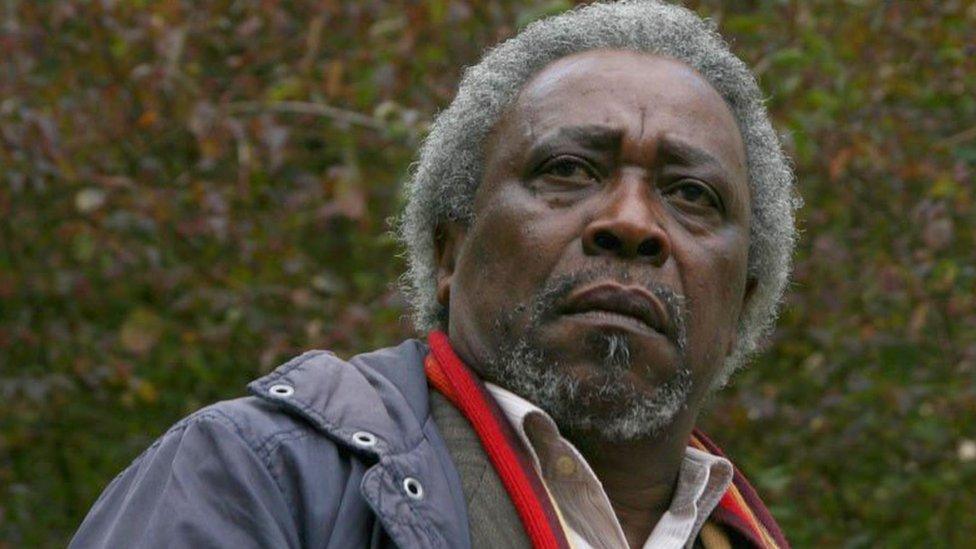Viewpoint: Why Germany's Namibia genocide apology is not enough
- Published
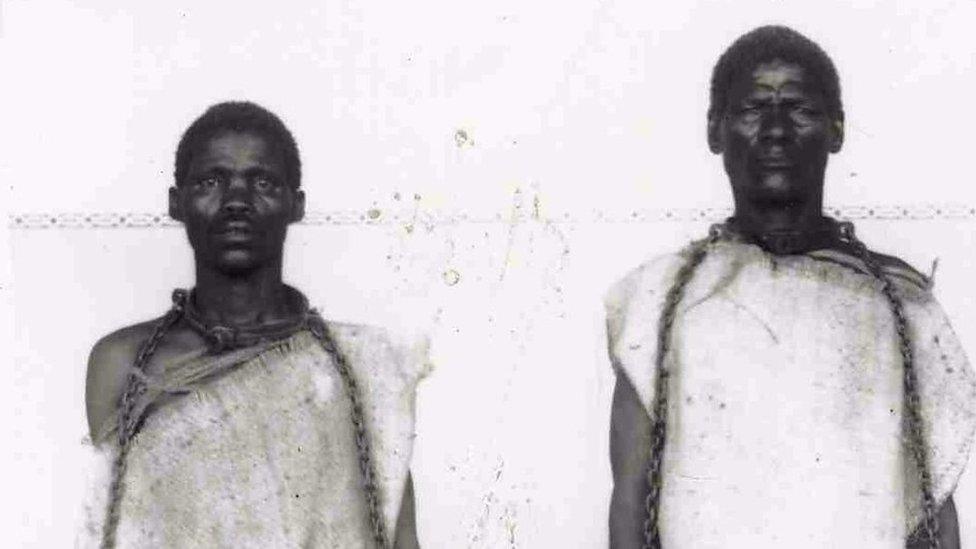
Between 1904 and 1908 tens of thousands of Ovaherero and Nama people were murdered
Germany's long-awaited apology for last century's mass killing in Namibia has opened fresh questions about how Europe confronts its colonial past in Africa, argues Namibian analyst Emsie Erastus.
Last week, at the completion of negotiations with Namibia, German Foreign Minister Heiko Maas made the announcement that the slaughter his country carried out in its former colony was a genocide.
There was also the promise of development aid worth more than €1.1bn (£940m; $1.34bn).
German colonisers killed tens of thousands of Ovaherero and Nama people in Namibia between 1904 and 1908. This amounted to some 80% of the Ovaherero and over 40% of the Nama. Their land and livestock were also confiscated.
This was punishment for taking part in an uprising.
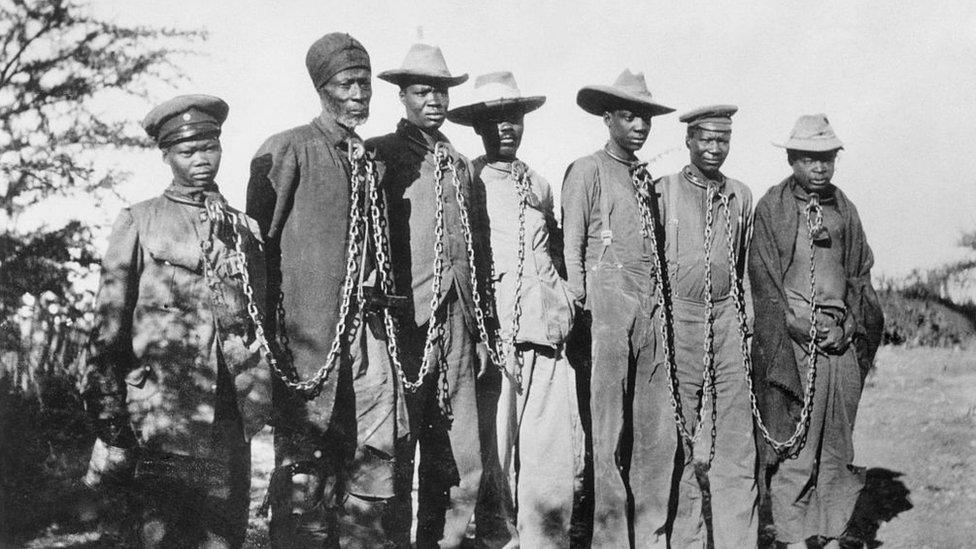
Captives taken after the Ovaherero rebellion were either killed or subjected to appalling brutality
The media announcement on Friday was stage craft at its best: a carefully compiled statement seemingly to avoid any legal culpability. It came as the largest faction within the Ovaherero community continue to pursue attempts to sue the German state for the genocide.
The message was intended for a sceptical German audience that, according to multiple studies, has little remembrance of the killings or of the country's past as a powerful colonial force with dominion over modern-day Togo, Namibia, Burundi, and Tanzania.
'Hollow declaration'
In terms of fully acknowledging its colonial past in Namibia, Germany has always been reluctant to do so. This is despite providing development support to successive administrations since Namibia's independence in 1990.
A half-hearted apology delivered by a German development minister in 2004, on the 100th anniversary of the start of the genocide, was roundly criticised.
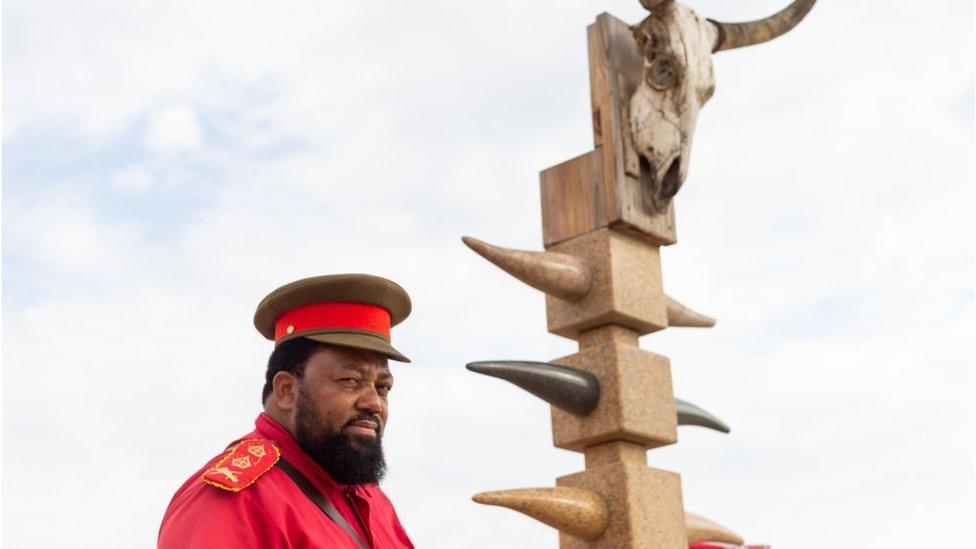
A monument for victims of the genocide has been built in Namibia's coastal city of Swakopmund
The clamour from the devastated communities for an unequivocal acknowledgement of the genocide, an apology, and compensation became louder. As a result, the two governments had no choice but to address the elephant in the room.
The negotiations may have resulted in the recognition of the genocide, but the declaration is hollow.
To begin with, the statement was made in haste for domestic and other political reasons. As a result, everyone, including the Namibian government, was caught off guard.
When the news of the statement made its way around the world, local chiefs representing the affected communities in Namibia were still being consulted on the conclusion of the recent round of discussions.
Some local pundits have speculated that the time was chosen to seize the spotlight following the French President Emmanuel Macron's apology to Rwanda for its role in that country's genocide in 1994.
Second, the settlement has been widely rebuked for failing to achieve the principle reparations demand.
The money Germany will give, which is much smaller than some had hoped, is very specifically meant for reconstruction and development projects.
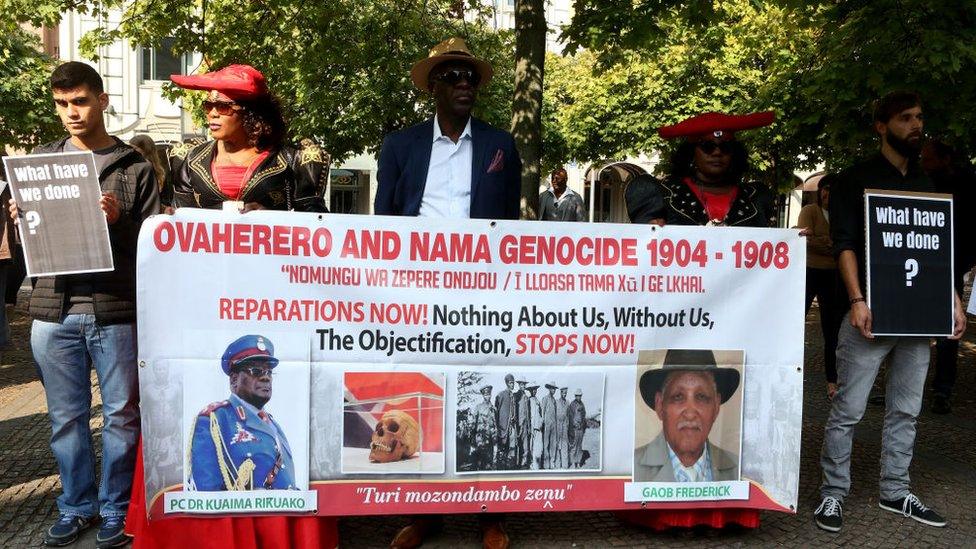
Some traditional leaders have voiced their opposition to the deal (file photo)
It is still not clear who will benefit. The agreement was made without the direct participation of the communities affected by the genocide at the negotiating table.
But the development aid itself is also problematic.
Germany made it clear that it is willing to atone for its colonial crimes "without sparing or glossing over them".
But the country also needs to come to terms with the origins of a racialised view of the world, placing Western authorities at the top and Africans at the bottom.
'Patronising aid'
In the colonial era, Africans were regarded as "barbarians" who lacked the abilities to bring about economic and technological change, justifying the intervention of the imperial powers.
This view defined how the West perceived and presented Africa in the past, and the echoes of that view may be found today.
Development aid can still be presented in a patronising way, maintaining an unequal relationship.
If it is being seen as an alternative to reparations, with fewer legal ramifications, it does not dismantle the relationship that allowed the genocide to happen in the first place.

You may also be interested in:

The Ovaherero and Nama people are not alone in their demand for compensation from former colonial powers.
Various groups and countries have sought reparations in recent years.
Burundi and the Democratic Republic of Congo are demanding some $43bn of reparations from Belgium and Germany respectively.
Last year, Belgium's King Philippe expressed his "deepest regrets" to DR Congo for his country's colonial abuses, but stopped short of a full-blown apology.
While statements of regret and apology are becoming more regular, paying reparations is still uncommon.
The legal ramifications, as well as the global scope of claims, have made former colonial powers hesitant.
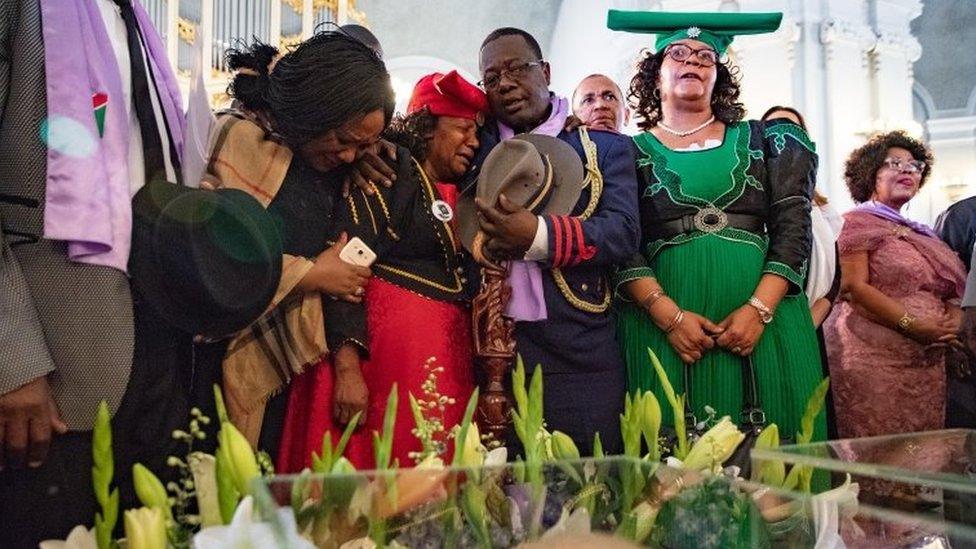
The deal follows years of efforts toward reconciliation
In Namibia, the descendants of those killed have been displaced from their homelands with their cultures and customs uprooted. Some are living in Botswana and South Africa, far away from their ancestral homes.
Jewish victims have been given reparations for the Holocaust, and Ovaherero and Nama communities are grappling with how they can secure the same.
It should come as no surprise that Germany's announcement has been roundly rejected by most of the traditional chiefs, including those who are thought to be supportive of the Namibian negotiators.
Chief Manase Zeraeua of the Zaraeua, speaking on behalf of a group of five government-aligned chiefs, released a statement rejecting the arrangement for falling short of their expectations.
No consultation
Given the severity of the genocidal murders perpetrated, the amount offered by the Germans for reconstruction work over a 30-year period has been deemed unacceptable by the chiefs.
They are also asking how the German government arrived at that figure.
According to the chiefs, descendants of the Ovaherero and Nama victims were not consulted during the talks, which took place behind closed doors.
To ensure a successful outcome, it is necessary to examine the harms inflicted by colonialism by hearing directly from the individuals who were affected.
This is the lesson for the former colonial powers if they truly want to find reconciliation.

More on Germany's past in Namibia:
The former German town with a new Namibian name
Related topics
- Published29 August 2018
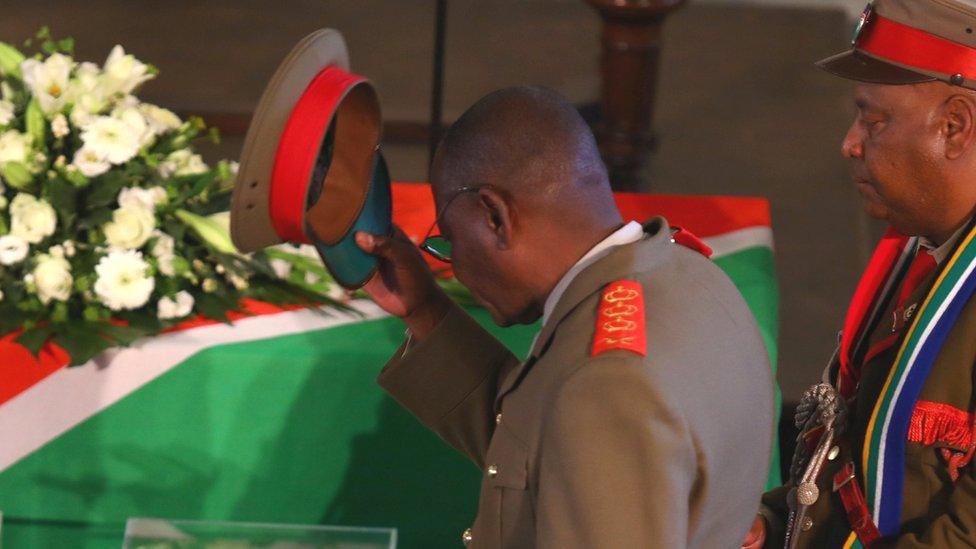
- Published28 May 2021
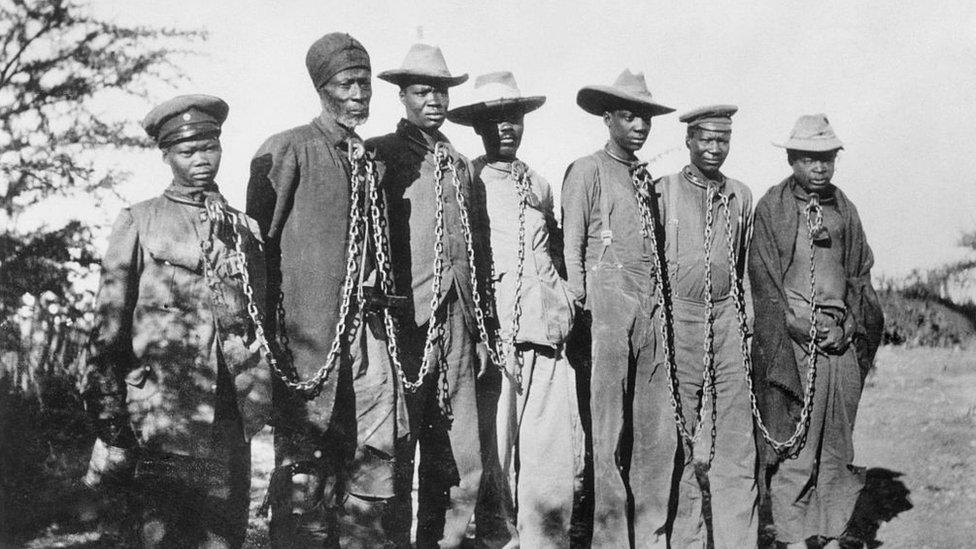
- Published12 October 2017

- Published13 November 2018
